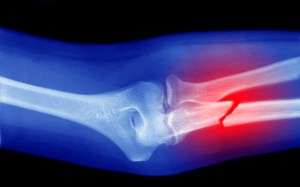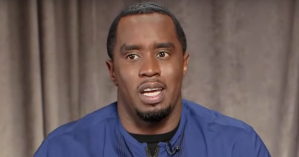The latest studies on the coronavirus pandemic show that people with certain blood types may have a lower risk of experiencing extreme symptoms of the disease. According to a report by NBC News, people with Type O blood seem less likely to suffer the worst version of COVID-19. People with Type A blood, on the other hand, are more likely to need hospitalization.
The report cites medical experts from around the country, and one particular study conducted in Europe and published by the New England Journal of Medicine last month. It found that people with Type A blood were 45 percent more likely to develop severe COVID-19 symptoms — meaning they required oxygen supplementation or a ventilator — than people with other blood types. Conversely, people with Type O blood were 35 percent less likely to experience these symptoms. Still, doctors say that this information should have no practical effect on how anyone approaches virus prevention in their day-to-day lives.
Videos by PopCulture.com
“I think something like this has much more sex appeal than it does real practical value,” said Dr. Aaron Glatt, chair of medicine and chief of infectious diseases at Mount Sinai South Nassau in New York. He and other experts pointed out that people with any blood type are potential carriers for the virus, and could infect others at a higher risk.
Additionally, blood type is a comparatively small factor besides other things that determine risk. Glatt urged people to take this information lightly, and continue with their usual preventative practices to slow the spread of COVID-19.
“They certainly shouldn’t walk around high-fiving and saying, ‘I can do whatever I want, I don’t have to mask, I don’t have to worry about anything because I have O’” Glatt said. “And they shouldn’t crawl into a corner of the world and not let anyone near them because they have A. Everybody should practice the same way, whatever your blood type is, in terms of appropriate masking and social distancing.”
Meanwhile, Dr. Lewis Kaplan of the University of Pennsylvania said that this data is still inconclusive, and raises as many questions as answers. “It might mean they have less risk, but if you engage in risky behavior, we don’t know just how much risk you need to incur to overwhelm whatever potential protection you might have,” he said. “We have no clue.”
While this information on blood types might play a part in research and the development of a vaccine, doctors say it will have no practical impact on treatment for a while. “If somebody has O and they’re not doing well, I’m not going to say, ‘Oh, don’t worry about it, you have O,’” Glatt said. “I would treat them appropriately. And if they have A and they’re doing very well, I would say, ‘OK, we’re going to continue to watch you.’”









